Our editors independently select these products. Making a purchase through our links may earn Well+Good a commission
Yes, You Can Use Facial Oil When You Have Oily Skin—Just Make Sure It Contains 1 of These 4 Ingredients
A celebrity derm tells us which ingredients to look for in a facial oil when you have oily skin—and which products are best.

Facial oils may not be a standard part of a person’s skin-care routine, as, say, moisturizer and sunscreen. However, there are plenty of advantages to using one. For example, they can bring a boost of hydration to dehydrated skin, or even harness certain antioxidant and anti-inflammatory benefits, depending on the type of oil you’re using. But what happens if you have oily skin? Is facial oils for oily skin a good idea? Anyone whose skin type is oily is usually hesitant to put any type of, well, additional oil on their face. Are those fears warranted, though? We asked a pro.
Experts in This Article
board-certified dermatologist based in New York
Can facial oils cause breakouts for those with oily skin?
Yes and no—it depends on the product and the ingredients. “Oily skin is more prone to breakouts, and using pure oils can exacerbate acne in certain patients under certain circumstances,” says the New York-based dermatologist Dr. Whitney Bowe. “My followers and patients always want to think about ingredients in a black or white fashion: This ingredient is comedogenic, but this one isn’t,” she says. “The hard truth is, it’s not that simple. Comedogenicity scales can be misleading, and the best way to determine if a product is likely to break you out or not is to look for brands that conduct clinical studies on the final formulation—the actual product you are applying to your skin.” Dr. Bowe goes on to say that just because one ingredient is high or low on a comedogenicity scale you find online, it doesn’t mean much in terms of real life risk.
Facial oil best practices when you have oily skin
When it comes to incorporating facial oils, Dr. Bowe encourages her patients with oily and acne prone skin, to slowly introduce facial oils before fully committing to making it a regular part of their routine. “Certain facial oils like sunflower seed oil or squalane oil are generally considered ‘non-comedogenic,’ which, again, is a controversial term,” she says. “This means they are less likely to cause a breakout than a heavier oil, like coconut oil, for example. People with oily skin that are acne-prone will want to focus on how occlusive a particular facial oil is, the concentration of the oil being used in the product (is it a star ingredient or is it at the bottom of the ingredient list) and how it reacts with their individual skin.”
Ultimately, she says, it’s a “test and see” situation, and, again, points out that the best way to predict whether a product will actually break you out or not is to see if that product has been tested in a clinical study.
When it comes to using facial oils in general, Dr. Bowe stresses that they’re more of a supplement, not a replacement for your moisturizer—a major misconception among her patients as well as skin-care aficionados on social media. “Facial oils do not hydrate or penetrate your skin’s deeper layers. Instead, they stay closer to the top layer of your skin, hydrating the surface of your skin while providing protection for your skin’s healthy barrier,” explains Bowe.
Top ingredients in oily skin-friendly facial oils:
- Jojoba oil
- Sunflower seed oil
- Squalane
- Rosehip oil
If you have oily or acne-prone skin and do want to try incorporating a facial oil in your routine, Dr. Bowe’s favorite oils are jojoba, sunflower seed oil, and squalane. “I find them to be incredibly nourishing and carry a much lower risk of clogging pores,” she says. “I do prefer they be formulated as part of a fast absorbing moisturizing cream for patients with oily skin, and ideally that cream has been studied in at least 30 subjects by a third party lab and overseen by a dermatologist.” Rosehip oil is another beneficial oil for oily and acne-prone skin, as the skin type can be typically low in linoleic acid. “Rosehip oil can help to replenish linoleic acid, which in turn, helps to prevent breakouts,” she adds.
If you’re ready to test them out, below, you’ll find 16 facial oils for oily skin types.
The best facial oils, specifically for oily skin
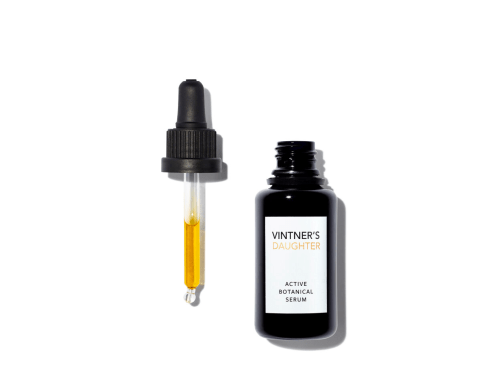
Vintner's Daughter Active Botanical Serum — $195.00
Everyone from celebrities like Tracee Ellis Ross and Hailey Bieber to beauty editors swear by this luxe face oil. It’s formulated with 22 nutrient-rich botanicals including calendula, grapeseed, and dandelion oils, as well as carrot seed, lavender, and lemon. Skin is packed with protective antioxidants, gets balanced out and so much more, apparently without ever making it feel greasy.
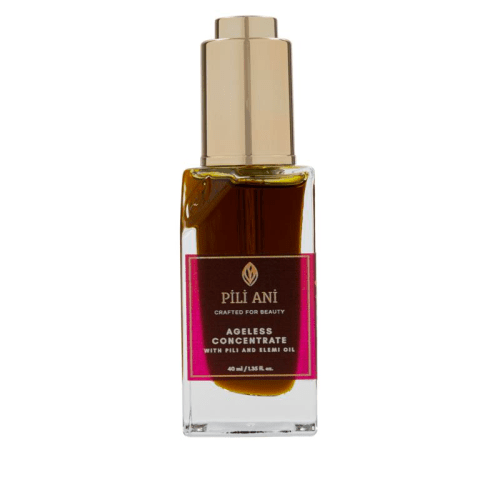
Pili Ani Ageless Concentrate — $66.00
With a fast-absorbing formula that’s meant for all types of skin, including oily, this concentrate contains a high percentage of Pili Ani’s hero ingredients, Pili and Elemi oils. These oils are harvested from pili trees in the Philippines and have antioxidant, antibacterial, and anti-inflammatory properties that protect the skin from environmental toxins as well as preventing breakouts.
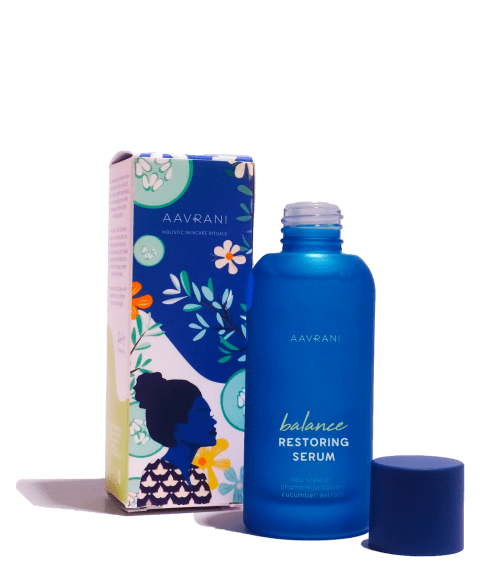
Aavrani Balance Restoring Serum — $60.00
The star ingredient in this alcohol-free serum is tea tree oil, which is a great natural acne treatment, thanks to its antimicrobial and anti-inflammatory properties.
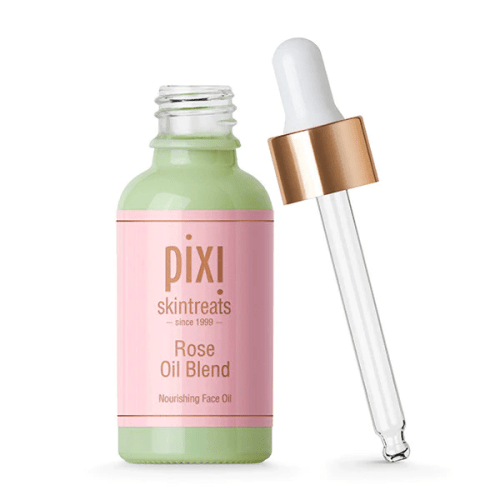
Pixi Skintreats Rose Oil Blend — $24.00
Pixi’s beloved Rose Oil contains rosehip, jojoba and sweet almond oils—all believed to be good for treating acne or reducing oil in skin.
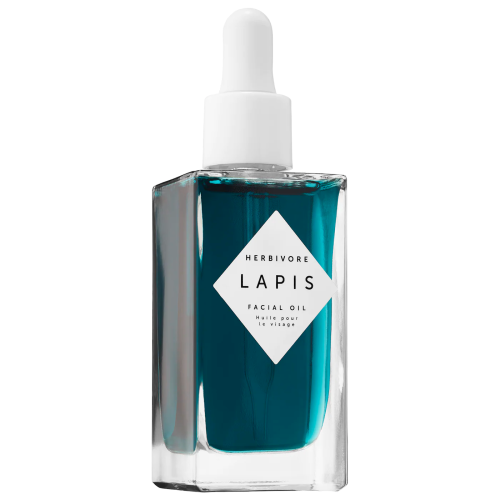
Herbivore Lapis Blue Tansy Face Oil - For Oily & Acne-Prone Skin — $72.00
Not only does blue tansy, the hero in this face oil, smell incredible, but it is known to calm the skin while helping with congested pores.
This Parisian Skincare Brand Is Launching in the United States for the First Time—Here’s What a Derm Wants You to Know

We’re Calling It: Cleansing Balms Are the Face Wash of the Future—Here Are 3 to Add to Your Cart

This Is the One Product That Scarlett Johansson Always Keeps in Her Purse and on Her Bedside Table

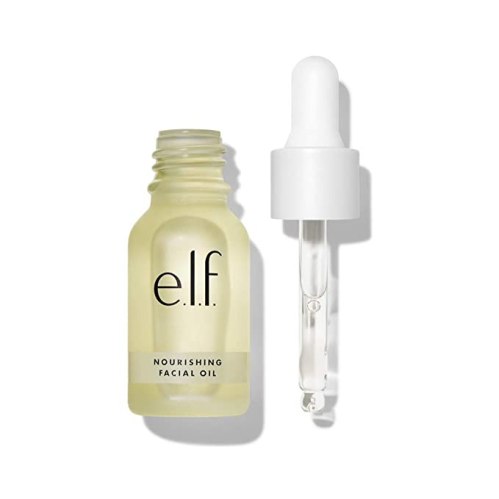
E.l.f. Cosmetics Nourishing Face Oil — $6.00
This face oil from E.l.f. Is packed with botanicals that are great for oily skin, such as rosehip and jojoba oils, and at $6, won’t break the bank if you want to experiment.
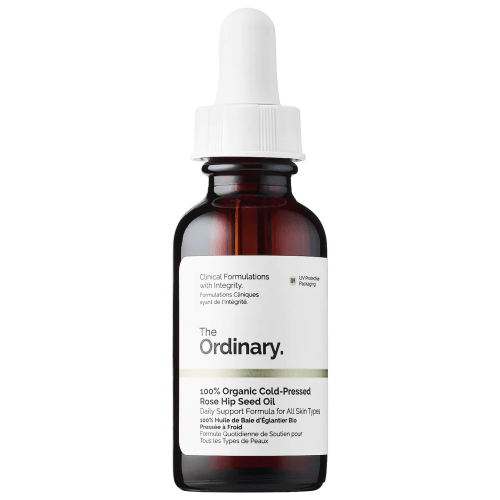
The Ordinary 100% Organic Cold-Pressed Rose Hip Seed Oil — $10.00
Just want a straightforward face oil without any other ingredients? This organic rosehip oil from The Ordinary is another great pick at an affordable price.
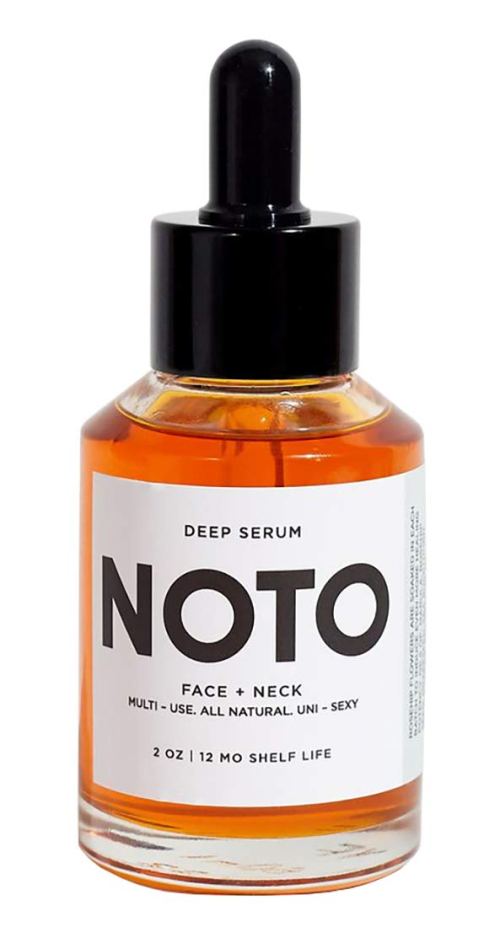
Noto Deep Serum — $44.00
From a brand that’s committed to gender fluidity, diversity, and inclusion in the clean and sustainable beauty market, this oil is made with a powerful combination of grapeseed, rosehip, carrot seed, and more healing, nourishing, and protective oils.
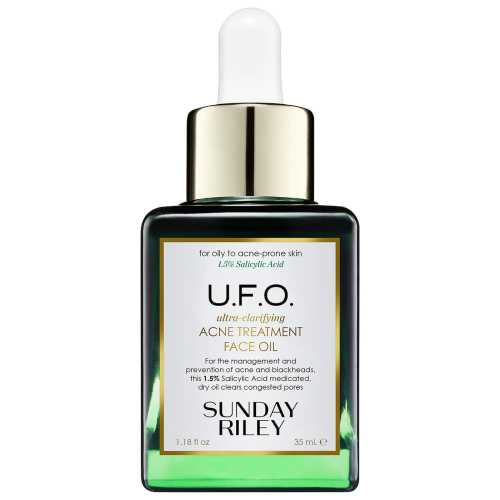
Sunday Riley U.F.O. Salicylic Acid BHA Acne Treatment Face Oil — $80.00
Loved by celebrity makeup artist Sir John, as well as the rapper Saweetie, and Gossip Girl’s Whitney Peak, this face oil is a gamechanger for those with oily and acneic skin.
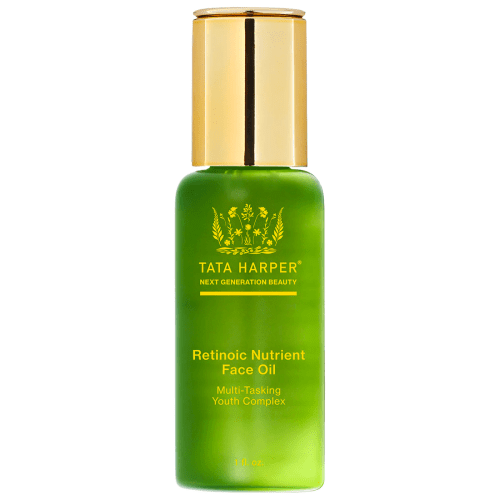
Tata Harper Retinoic Nutrient Face Oil With Vitamin A — $150.00
If you’re seeking a face oil that is good for oily skin types but also want something that can help fight fine lines and wrinkles, vitamin A-powered face oil is a good one to try.
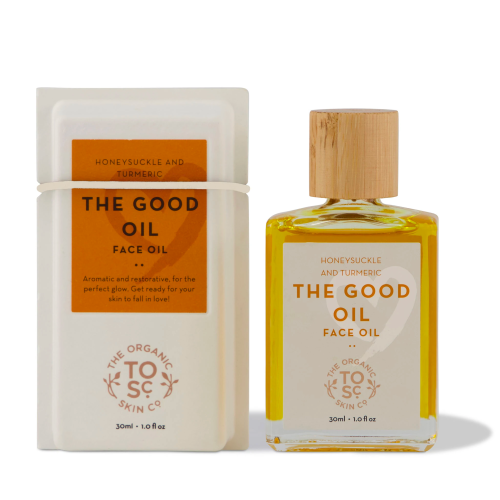
The Organic Skin Co. The Good Oil — $35.00
Are you prone to breakouts? This face oil contains turmeric, which is an anti-inflammatory ingredient that can help fight acne as well as potentially reduce scarring.
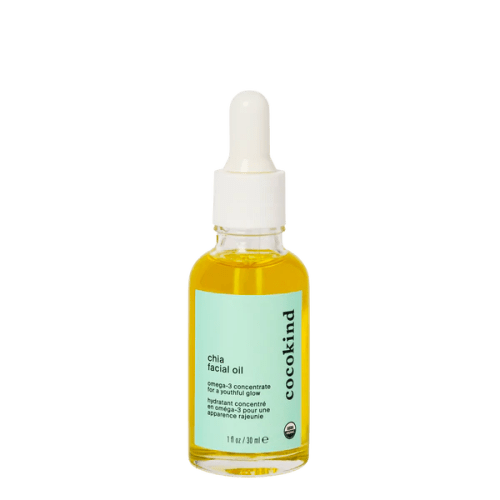
Cocokind Chia Facial Oil — $16.00
Cocokind’s organic facial oil highlights chia seed, which is known to be a great choice for oily and acne-prone types as it’s lightweight and absorbs quickly.
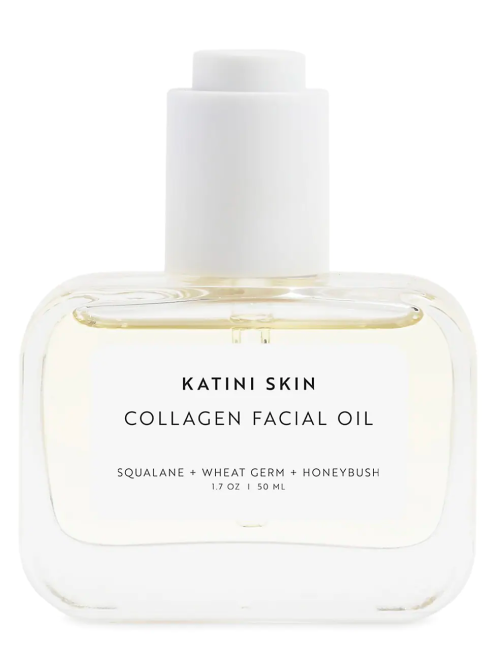
Katini Skin Collagen Face Oil — $115.00
Katini’s luxurious face oil has squalene, which has a low risk of clogging pores, as well as wheat germ, which may help reduce fine lines and wrinkles.
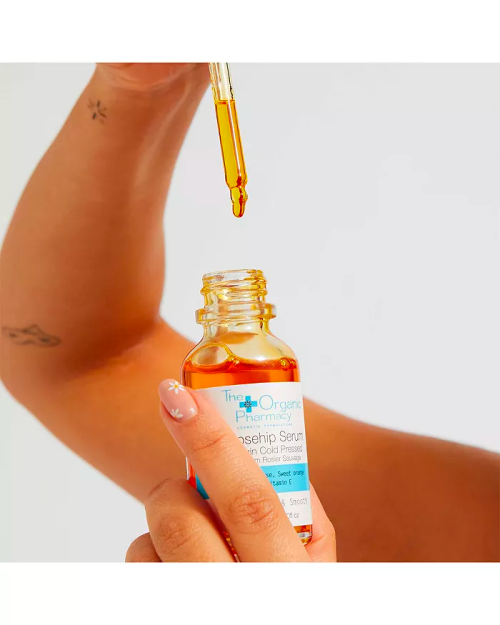
The Organic Pharmacy Virgin Cold Pressed Rose Hip Oil — $60.00
This cold-pressed, organic oil can help with everything from sun damage, to scars, to wrinkles. Key ingredients include sweet orange, rose hip, and sunflower seed oil.
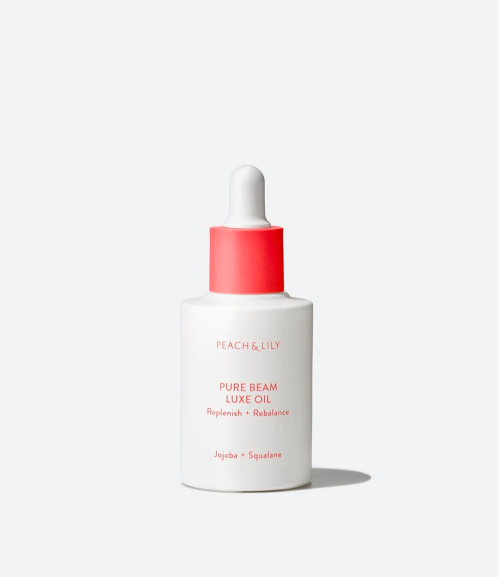
Peach and Lily Pure Beam Luxe Oil — $39.00
Your skin will be left nourished and feeling soft after using this Peach and Lily oil, as it contains a powerful antioxidant combo of squalane, camellia, jojoba, grapeseed, and sea buckthorn oils.
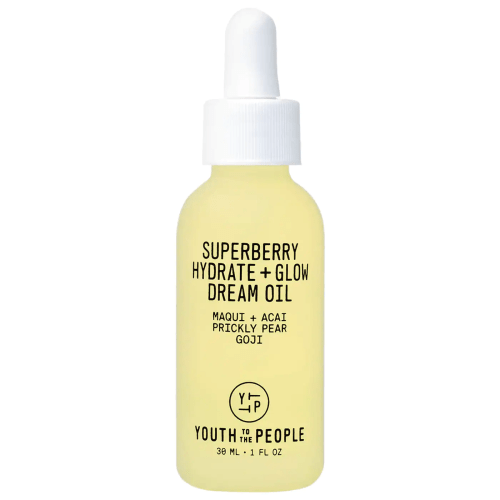
Youth To The People Superberry Hydrate + Glow Dream Oil — $44.00
This squalane-based face oil contains maqui, aka Chilean wineberry, a super dense antioxidant to protect skin from external pollution, as well as redness-reducing prickly pear, and omegas-packed acai.
Want to be the first to hear about the latest (and greatest) SHOP product drops, custom collections, discounts, and more? Sign up to have the intel delivered straight to your inbox.







